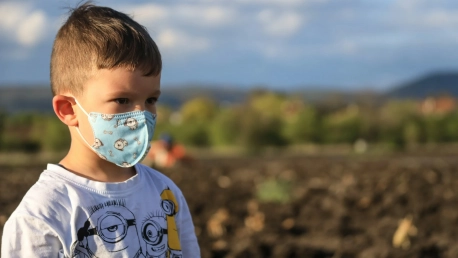The changing terrain of childhood food allergies brings challenges to many families, who must constantly be on guard. This can create an environment filled with anxiety. However, a glimmer of hope shines through the introduction of oral immunotherapy (OIT). This new treatment is becoming a beacon of hope, promising to lessen the dangers associated with food allergies. By following Noah’s journey, we gain insight into the impactful role OIT plays in transforming the lives of children with food allergies. Noah’s experience with OIT showcases the therapy’s potential to improve the quality of life by gradually desensitizing the immune system to allergens, potentially reducing or even eliminating allergic reactions. As this approach gains traction, families affected by food allergies are beginning to see a future where the fear associated with every meal could be significantly diminished.
The Devastating Impact of Food Allergies on Families
Noah’s story begins like that of many children afflicted with multiple food allergies—with an anaphylactic event that became a life-altering crossroads for his family. His mother quickly became acquainted with the rollercoaster of emotions ranging from initial helplessness to profound anger. The routine became one of unrelenting caution, restricted by a list of forbidden foods, and fear loomed over every meal and social event. Traditional allergy management, heavily reliant on avoidance strategies and emergency measures like EpiPens, served as an omnipresent reminder of the dangers posed by everyday foods.For Noah’s family, the psychological weight was tangible. They lived in a world where labels became enemies and trust in food was scarce. Every outing required meticulous planning, and each day was overshadowed by the possibility of accidental exposure. The joy of food and communal eating was replaced by an ever-present anxiety, as they learned to navigate this new, restricted life.
A New Hope: The Introduction of Oral Immunotherapy
Hope entered through a conversation, an exchange of stories between mothers, leading Noah’s mother to discover OIT. This therapy presented a stark contrast to the primarily prohibitive tactics they had been employing. OIT was not about teaching a family how to avoid allergens completely but about confronting them in a controlled and gradual manner. By introducing tiny amounts of the offending allergens and incrementally increasing the doses, the goal was to desensitize Noah’s immune system and mitigate his allergic responses.This marked the beginning of a transformative journey. Where once there was fear at the mere mention of peanuts or eggs, OIT slowly opened up a world without such crippling restraints. It represented more than just a treatment; it was a beacon of change that held the promise of a less restricted future, a break from the isolation that so often accompanies severe food allergies.
Noah’s Journey Through OIT: An Engaging Narrative
Noah became an emblematic figure for the possibilities that OIT could offer. Deemed an ideal candidate due to his young age and type of allergies, the therapy was carefully tailored to his needs. It wasn’t a simple road; the complexity of Noah’s case, which included challenges like managing his asthma and dealing with common colds, required adaptable dosing and a responsive healthcare team.Undergoing OIT required dedication, not just from Noah but also from his family. It demanded a commitment to regular dosage increases and close monitoring for any reactions. While this was a source of anxiety for his mother, the progress Noah made was palpable. Over time, the immense relief that came with decreased fear of accidental exposure became one of the most treasured outcomes of the therapy, reshaping the family’s approach to daily life.
Psychological Challenges and Triumphs in Allergy Treatment
The journey through OIT wasn’t solely medical—it was psychological. Noah’s mother faced her own monumental hurdles: managing the stress that comes with administering the therapy at home and dealing with the constancy of worry. An important victory came in acknowledging the need for psychological support, a move that was as vital for her as the physical treatment was for Noah. It allowed her to navigate her anxiety and communicate effectively with the medical team, all for the sake of her son’s well-being.Their story reflects a broader narrative experienced by many families. The isolation that food allergies can cause is profound, but as Noah’s mother found strength and strategies to cope, her mental health journey became a beacon for others. It underscored the necessity for comprehensive care that includes mental health support as part of successful treatment.
The Evolving Role of Community and Healthcare Collaboration
The ordeal also shed light on the vital role community plays. It was through shared experiences and encouragement from other parents that Noah’s mother found strength and information. The OIT experience uncovered the need for a collective approach, where learnings were shared, and support systems were built, not just within the medical community but also among those living with the condition.The collaboration between Noah’s family and his healthcare providers underlined a critical aspect of managing chronic conditions—partnership. This synergistic relationship was integral to navigating the ups and downs of OIT and was foundational in crafting a tailored treatment plan that recognized the unique challenges faced by Noah and his family.
The Future of Food Allergy Management: A Call to Action
As Noah flourishes with OIT, his mother emerges as a powerful advocate for the treatment. She’s calling for healthcare professionals to open up more opportunities for OIT, to share the transformative effects it can bring. Her ambitions are vast, not just for her family but for all those affected by food allergies – she imagines a world where these conditions cease to govern social interactions and daily life.OIT represents not just a medical advancement but a chance at liberation for kids like Noah, allowing them to participate in the world without fear. It’s about crafting a new routine for families, one that isn’t overshadowed by the anxiety of allergic reactions. The strides Noah is making are inspirational, offering a glowing symbol of perseverance and possibility for many families in similar situations, embarking on a journey toward a more inclusive and less restricted future.









